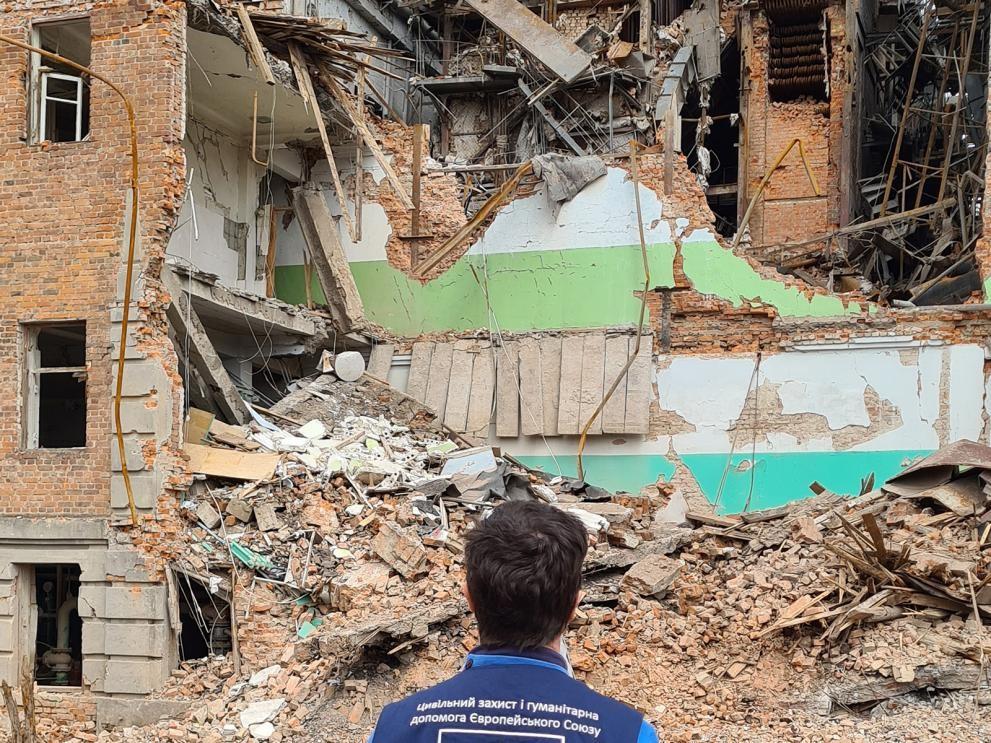Ukraine: war through the eyes of humanitarians on the ground

Since the start of Russia’s invasion on 24 February, the lives of Ukrainians have been turned upside down. The war continues to cause civilian deaths and injuries and damage to homes, schools and health facilities.
EU humanitarian experts on the ground ensure that emergency assistance goes where it is most needed. They are witnessing the difficulties faced by Ukrainians and the solidarity among them.
Since Russia’s war of aggression against Ukraine started, more than 12 million people have been forced to flee their homes. As well as the 5.2 million civilians who have sought refuge in neighbouring countries, another 7.7 million people are displaced inside the country.
“When the war started [in February 2022], we stayed for a month. We thought it would all end,” says Antonia. She lived in Sloviansk, eastern Ukraine, an area that has seen ongoing hostilities for more than 8 years. “But the explosions got louder and louder. Then my son’s wife saw a rocket flying above us and said, ‘That’s it! It is time to pack and leave!’”
Antonia and her family fled to Burshtyn in western Ukraine. We met her at a distribution of beds and blankets through the EU’s long-standing partner in Ukraine, People in Need. “We thank the people here who welcomed us. In general, whenever we need something, basic items or information, they support us,” says Antonia.
Helping people on the ground
Antonia’s distribution centre is one of many in western Ukraine. Schools, train stations or cultural centres are now serving as makeshift shelters for Ukrainians fleeing active war zones. Most of them are women and children.
“Each of them has a terrible story to tell”, says our colleague Samuel after visiting displaced families. “When I talk to those people, they are shocked. The sense of trauma and despair is significant.”
“We are already addressing those needs with psychosocial projects that our partners implement,” he explains.
Aside from addressing the humanitarian needs of the displaced, providing help to those stranded in the hard-to-reach war zones is a priority for EU humanitarian aid.
“We are very concerned about the plight of the people under siege and in the areas directly affected by the war. We advocate and try to negotiate for the respect of the international humanitarian law and humanitarian principles,” says Yorgos Kapranis, who is coordinating the EU’s humanitarian response in Ukraine.
“Humanitarian organisations must be able to reach these people and bring them life-saving assistance,” he explains.
The EU has announced a total of €143 million of humanitarian funding in response to the war in Ukraine. Despite the security concerns and access challenges, our humanitarian partners are present, delivering aid across the country.
Volodymyr is a humanitarian expert in Ukraine. He has been working for the EU since 2016. The war forced him to change location several times, but he is working tirelessly to help civilians affected by the war.
“We, as the humanitarian community, cannot fail,” says Volodymyr, who is Ukrainian himself. “If we do, it will cost lives”.




